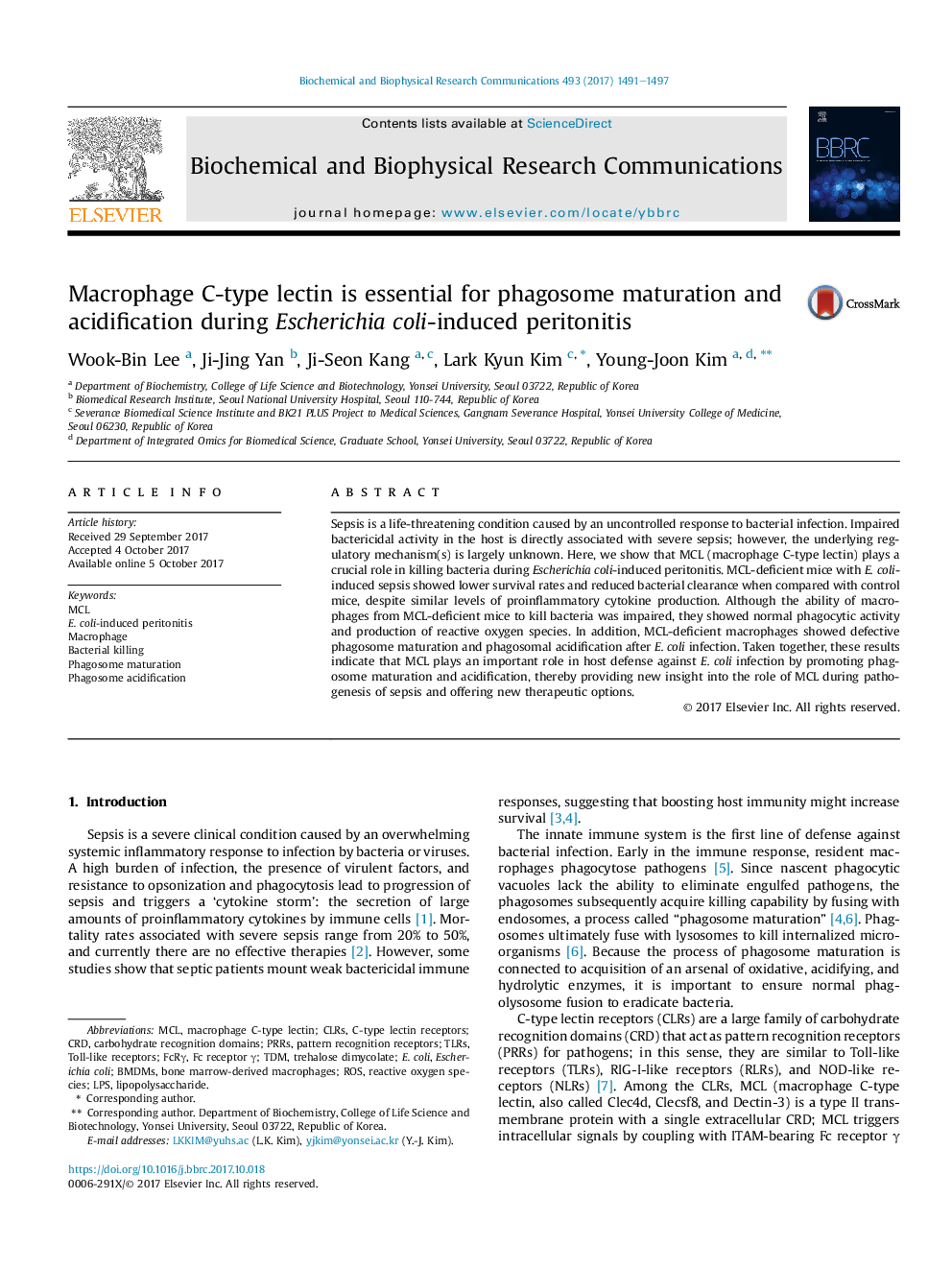| Article ID | Journal | Published Year | Pages | File Type |
|---|---|---|---|---|
| 5504548 | Biochemical and Biophysical Research Communications | 2017 | 7 Pages |
Abstract
Sepsis is a life-threatening condition caused by an uncontrolled response to bacterial infection. Impaired bactericidal activity in the host is directly associated with severe sepsis; however, the underlying regulatory mechanism(s) is largely unknown. Here, we show that MCL (macrophage C-type lectin) plays a crucial role in killing bacteria during Escherichia coli-induced peritonitis. MCL-deficient mice with E. coli-induced sepsis showed lower survival rates and reduced bacterial clearance when compared with control mice, despite similar levels of proinflammatory cytokine production. Although the ability of macrophages from MCL-deficient mice to kill bacteria was impaired, they showed normal phagocytic activity and production of reactive oxygen species. In addition, MCL-deficient macrophages showed defective phagosome maturation and phagosomal acidification after E. coli infection. Taken together, these results indicate that MCL plays an important role in host defense against E. coli infection by promoting phagosome maturation and acidification, thereby providing new insight into the role of MCL during pathogenesis of sepsis and offering new therapeutic options.
Keywords
Related Topics
Life Sciences
Biochemistry, Genetics and Molecular Biology
Biochemistry
Authors
Wook-Bin Lee, Ji-Jing Yan, Ji-Seon Kang, Lark Kyun Kim, Young-Joon Kim,
